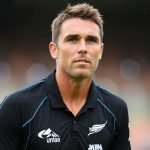Do you have a love/hate relationship with food or eating? Do you have an intense fear of gaining weight or getting fat (regardless of the shape or appearance of your body)?
With so much social pressure on our appearance, your self-esteem can be based on your leanness. Other signs include a severe restriction of your caloric intake by following a regular diet or fast, exercising excessively, vomiting after eating or using laxatives and diuretics. When your negative thoughts and feelings about your body image begin to control your life, you risk having an eating disorder. Eating disorders can be dangerous and even life-threatening. interfere with your physical, psychological and social functioning. There are three common types of eating disorders, including bulimia nervosa, anorexia, and binge eating disorders.
Can I cure an eating disorder?
Yes! Eating disorders can be treated. If you are worried about an eating disorder, consult your doctor, who can refer you to a team of health professionals who can help you recover. These include a psychologist Gold Coast, a psychiatrist, a pediatrician, a dietitian or a nutritionist, support groups and various complementary treatments. A combination of treatments is usually the most effective for treating an eating disorder.
Types of Treatment for Eating Disorders
Medical intervention
Due to the number of physical health problems caused by an abnormal diet, it is recommended that you have regular check-ups and supervision by your doctor. This includes regular monitoring of your heart rate, your blood pressure, and blood tests to monitor your potassium and mineral levels and various bodily functions. Medication may also be necessary if you have an eating disorder, as well as another type of disorder or illness, such as depression or anxiety. Medications can be prescribed by psychiatrists or doctors and should be used in combination with other treatments.
Nutrition
Consulting a nutritionist or dietician is an important part of your multidisciplinary treatment approach. A dietitian can inform you about nutritional needs and help you plan your meals. A nutritionist can also help you develop normal, healthy eating habits and behaviors.
Psychology
There are different types of psychological treatments for eating disorders. Some of the psychological approaches include cognitive behavioral therapy, interpersonal therapy, dialectical behavioral therapy, acceptance and engagement therapy, family therapy, FBT / Maudsley (for adolescents) and group therapy. Cognitive-behavioral therapy is effective in the treatment of eating disorders.
Cognitive Behavioral Therapy for Eating Disorders (CBT-E)
It would be normal to be nervous at the beginning of treatment or worried about the effects of treatment. The goal of treatment is to give you control of your diet rather than control of your life through your diet. Your psychologist will explain what your eating disorder is, what your treatment is, what is expected of you and answer all your questions.
The treatment of Eating Disorders by Vitality Unleashed Psychology can take sessions (and perhaps more for severe cases) and will take place in four stages:
- In Session 1, your psychologist will work with you to develop a treatment plan tailored to your needs, to help you better understand how your eating disorder has developed and what keeps you upset.
- At stage 1 of treatment, you will be introduced to a regular diet plan
- In Stage 2 treatment, your progress will be reviewed, any barriers to change identified, and strategies proposed to help you manage them.
- During the 3rd stage of treatment, key issues related to maintaining your condition will be addressed, including your fear of gaining weight, restrictive eating habits, perfectionism, and your self-esteem. The therapy will seek to identify thought patterns, behaviors and unnecessary “rules” of diet, form and weight. Your thoughts can affect how you feel, which affects what you do. Vitality Unleashed Psychology treatment will help you recognize your negative thoughts, challenge them, and replace them with more useful thoughts.
- The treatment will also help you manage your difficult emotions/moods so that you can stick to your new eating habits.
- During the 4th stage of treatment, the sessions will focus on maintaining the positive changes you have made and the implementation of plans to minimize the risk of relapse (for example, preparing a party or managing a stressful situation)
Getting Help for an Eating Disorder
It’s never too early or too late to ask for help. If you need more information about your eating disorder or the treatment of these disorders, please make an appointment and talk to one of our clinicians.
At Vitality Unleashed Psychology’s Professionals, we take a multidisciplinary approach to treating eating disorders and our clinical psychologists work alongside an experienced dietitian who focuses on the treatment of eating disorders. Our psychologists and dieticians are both located in our Gold Coast clinics for your convenience.
If you wish to consult our service, please download our reference information sheet and take it to your doctor. Do not forget to book an extended consultation with your general practitioner so that he can make the necessary referrals of the treatment plan for your treatment with a Gold Coast psychologist and a dietician. For more information, please contact one of our friendly staff at Vitality Unleashed Psychology Professionals 07 5574 3888.



































































